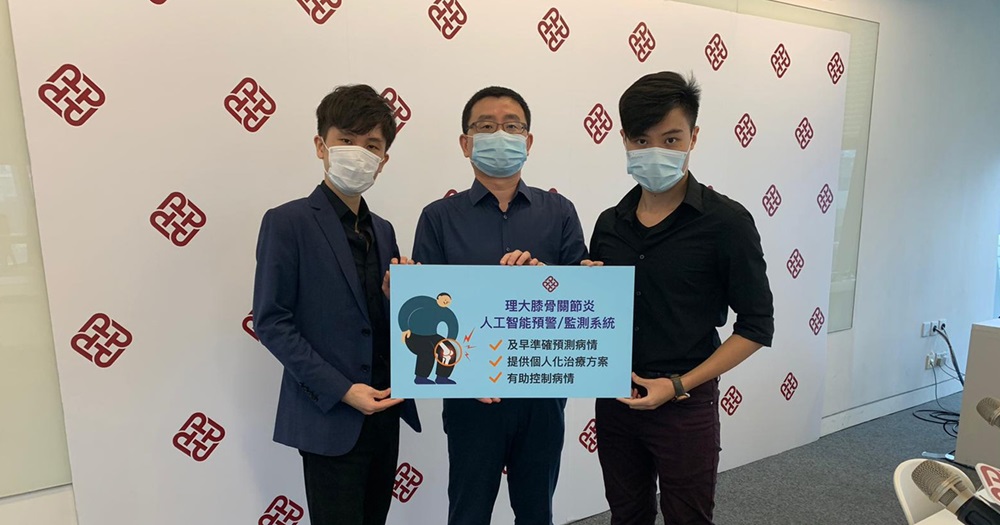Knee Osteoarthritis (KOA) is a chronic degenerative disease with no cure. Early detection is critical for early intervention to prevent disease progression and to reduce the need for salvage joint replacement surgery.
A team led by Dr Chunyi Wen, Associate Professor of PolyU’s Department of Biomedical Engineering, has developed an artificial intelligence-based KOA screening system that can predict the risk of KOA progression at different time points in the future with an accuracy of 80%. The system won “Global Innovation Awards” at the TechConnect Business Virtual Summit and Showcase 2020.
The system was trained by US Dataset with data of over 10,000 KOA patients. Mr Justin Chan, MPhil student in Biomedical Engineering at PolyU, said the system can predict the risk of KOA with basic information of the patient, such as age and daily habit, plus a medical-related questionnaire of about 20 questions responded by the patient’s family doctor.
Dr Wen noted that under the current hospital flow, new KOA patients have to wait for years for treatment in public hospitals. Their system can provide early diagnosis and therefore reduce the consultation time by up to 90%. The outcome would also aid clinical practitioners to perform efficient triage and construct personalised treatment plans.
Mr Toby Li, also MPhil student in Biomedical Engineering at PolyU, pointed out that the AI system can deepen the collaboration between community medical and clinical systems, as well as improve the management of chronic diseases, and hence an expected reduction of health costs of HK$1.4 billion each year.
The team is currently applying to the Hospital Authority for the use of data of 100,000 KOA patients in Hong Kong, with an aim of enhancing the system’s accuracy to 90%. It is also applying for subsidies from the government to recruit 2,000 people for clinical tests within five years.
Moreover, a mobile application is being developed to measure and record relevant physiological data of the patients regularly, so as to facilitate continuous tracking and self-management of the disease. (Oriental Daily News A13, Hong Kong Economic Times A19, Ta Kung Pao A09)
[From Department of Biomedical Engineering]
Related News Articles:
理大研智能預警系統 防膝骨關節炎 [東方日報(Oriental Daily News)]
理大研AI系統 預測膝骨關節炎 開發手機App助記錄數據 監察病情 [經濟日報(Hong Kong Economic Times)]
理大研究奪全球創新獎 助分流患者 膝關節炎AI預警 準確率90% [大公報(Ta Kung Po)]
理大研AI系統評估膝關節炎 有助提升準確度及節省診症時間 [香港01(HK01)]



